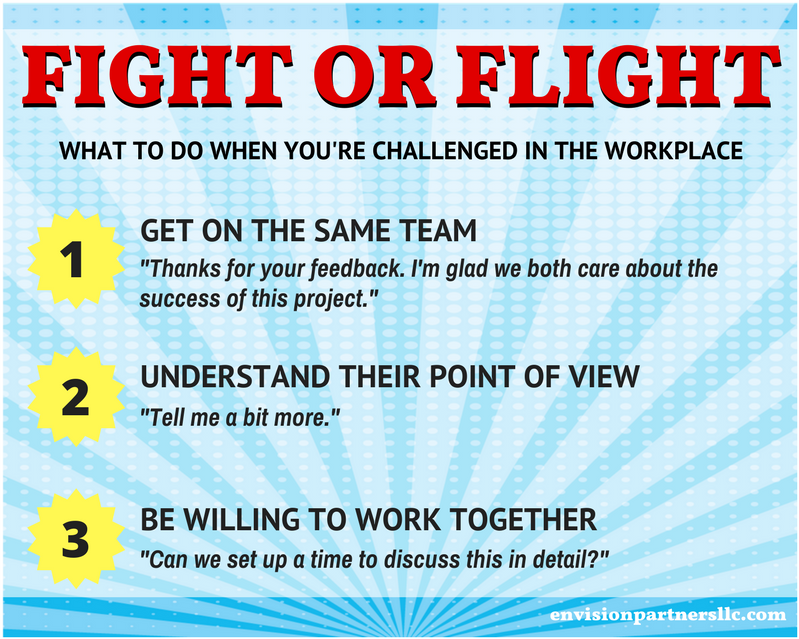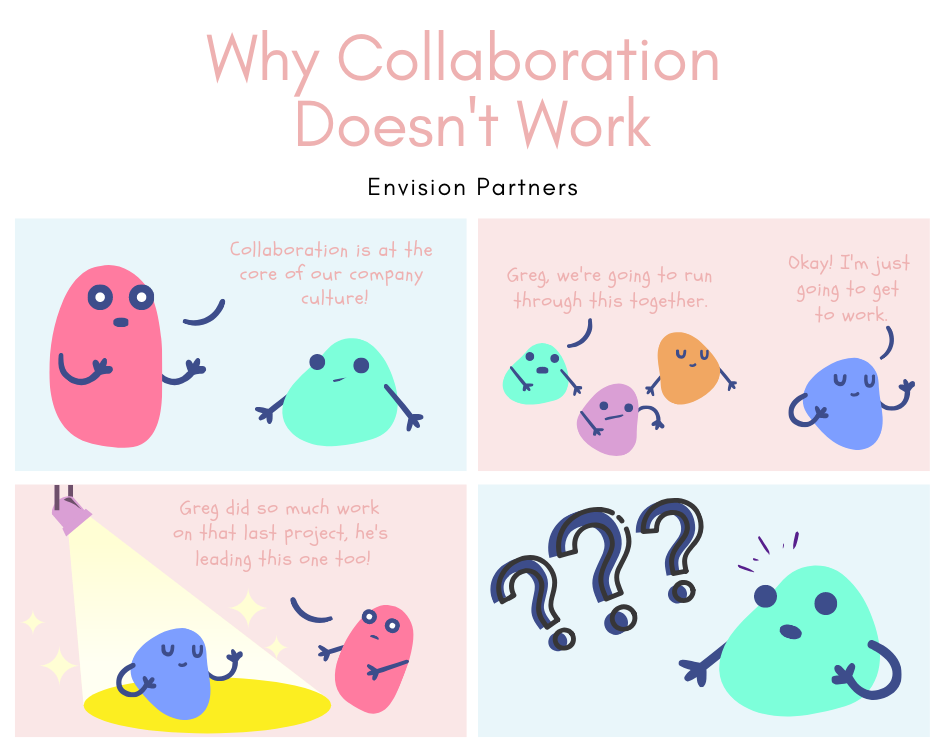Challenged– Fight or Flight?
The first question after Mike’s presentation was by someone he did not know. The questioner introduced herself as being from finance, and continued, a bit forcefully and not very specifically, that his assumptions about input costs were incorrect and the budget would not allow him to do so many experiments.
How should Mike respond? How have you seen others respond? How would you respond to this kind of challenge?
It is very easy for this situation to get out of hand. Mike had spent at least 2 weeks assembling this presentation, putting off other projects. He had worked with his contact in purchasing to get material prices. Making the proposal in front of the executive team, his nerves were already high. Importantly, Mike knew that he would have to make a very important decision based on the outcomes of these experiments. The more experiments he could do, the easier and potentially better his decision would be.
Fight or flight? Should Mike choose to challenge the questioner’s point of view or should he just stand there, dumbfounded? Fortunately, Mike has been in this situation before and learned a few lessons that helped him today.
Mike tried taking finance’s perspective by first addressing the emotion in the question. Mike knew that he was better able to keep his own emotions under control if he took a moment to think about why she was might be responding so forcefully. Assuming good intentions, Mike started with a mindset that his challenger also really cared about the– in fact, their goals may even be aligned.
“Thank you. I think we share an interest in the outcome of these experiments.”
Mike does not work in a vacuum and he has accepted that he cannot know everything. While a bit embarrassing that he might have gotten an important assumption wrong, Mike knew that he was better off to address the problem early rather than to force his way ahead. With a room full of executives, this was not the venue to debate the details of the input cost or the required number of experiments. With a starting point that every comment can be a useful comment, Mike was able to ask for more information without a critical tone.”
“Tell me a bit more.”
While it is too easy to view a challenger as an opponent (even for the fun of a spirited debate), it is better to try to build them as an ally. Building an alliance does not mean giving up your point of view. Through open interaction, even though it started out rough, Mike was able to appease the questioner enough to move onto other questions and comments.
“Can we set up a time to discuss this in detail after this meeting?”
While Mike was not sure what the executive team thought, he knew that being able to talk through the challenge put him in a better light than if he had adamantly stood his ground without listening. Mike’s assumptions about input costs were incorrect, but rather than cut the number of experiments, his new partner in finance found the funds to support the number of experiments that Mike felt were needed to make the best decision possible. As a result of his willingness to engage, Mike also built a new relationship with the finance department for this and future projects.











A 3-step process to help you and your employees create lasting behavioral change.